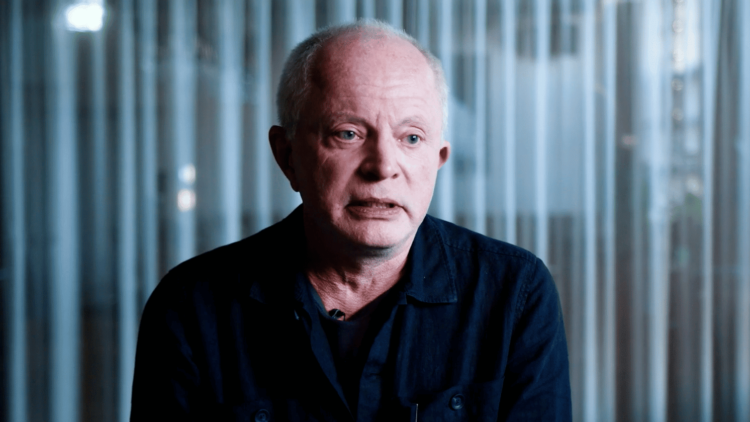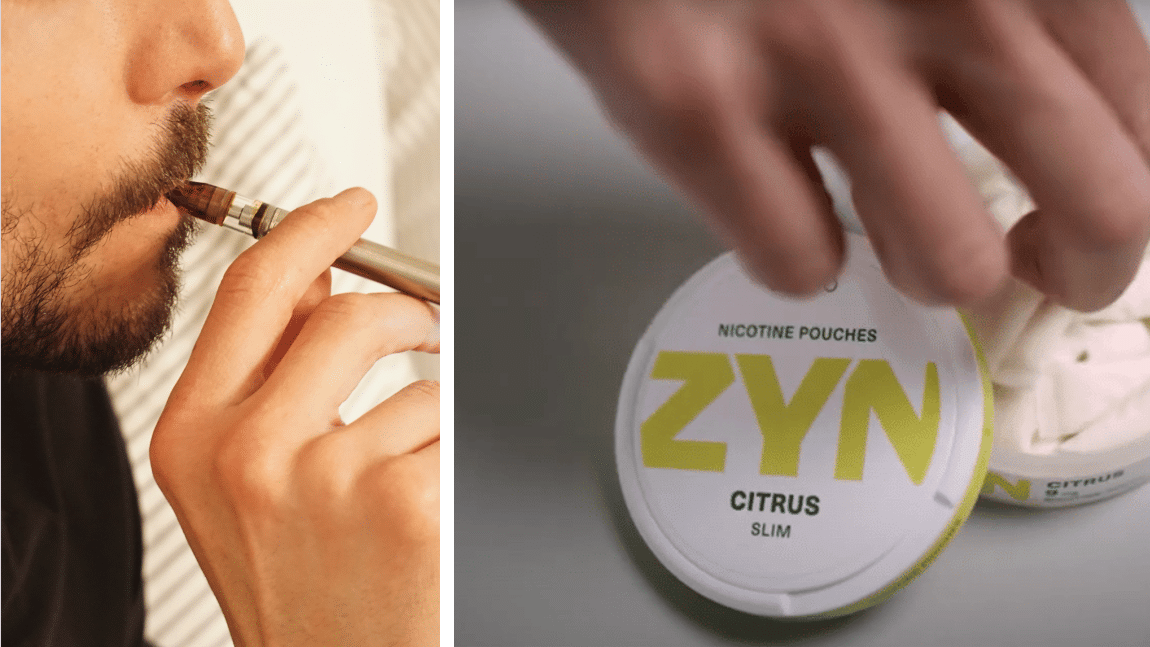
Lars Rutqvist: the oncologist who wants smokers to switch to Swedish snus
In the 1980s, it was controversial to claim that snus is less harmful than smoking cigarettes, especially if you were an oncologist. But Lars Rutqvist simply wanted to let the research speak for itself. And it has. In this instalment of Snusforumet’s Harm Reduction Heroes series, meet the researcher who helped make sure the world understood the potential of Swedish snus.
The debate in Sweden surrounding snus has shifted dramatically over the years. Today’s more nuanced understanding comes following dozens of studies published in recent decades looking specifically at the health effects of Swedish snus.
But the road has been long and winding, not least for Lars Rutqvist, who has been on the front lines and played an important role in shattering many stereotypes about tobacco, nicotine, and public health.
“When something changes so slowly, it can be difficult to see that anything’s changed from one month or year to the next. But when looking back with a few years of perspective, the change can be significant,” says Lars Rutqvist.
Scientific work has been a recurring theme in his long career in cancer care and research. Among other positions, he served as an oncologist and chief physician at Huddinge University Hospital south of the Swedish capital and later at the prestigious Karolinska University Hospital in Stockholm.
Listening to science
More than 150 research reports bearing his name have been published in international scientific journals. A study published in 1998, “Smoking tobacco, oral snuff and alcohol in the etiology of carcinoma of the head and neck” is one of the world’s largest epidemiological studies of risk factors for cancer in the ear, nose, and throat.
The results showed an increased risk of cancer when smoking, especially in combination with alcohol – but no increased cancer risk when using Swedish snus.
“When the results of this study came out, I realized that they were extremely important for the prevention of smoking-related diseases,” says Rutqvist.
“If smokers could switch to a product that doesn’t have all the adverse effects of cigarette smoking, there could be a substantial public health benefit.”
For over four decades, Rutqvist has been driven by one goal: that fewer people should die of cancer. And sometimes he has thus been forced to act as the voice of reason to combat “the established truths” in the debate about snus and tobacco products.
“As a researcher, I believe in science and my hope is that people will listen more to science than ideology,” he says.
“Sweden is a living example of what can be achieved when it comes to public health by switching from cigarettes with snus.”
Unfounded debate accelerates research
It all started in the late 1980s when Rutqvist realized there was a lack of research-based arguments in the debate about tobacco in Sweden.
At a time when there were few scientific studies on health risks with Swedish snus, the debate was marked by fears of an increased risk of cancer and other diseases. No distinction was made between snus from cigarettes, nor did people understand that nicotine itself wasn’t carcinogenic.
Rutqvist’s contribution to the discussion – that there were no scientific studies that confirm people’s fears – created an uproar.
“Many took it for granted that the nicotine in tobacco was the major health hazard. But it’s been shown that nicotine is in many respects comparable to the caffeine found in coffee,” he explains.
“It’s addictive, but relatively harmless from a health perspective, although some groups such as pregnant women should not consume nicotine or caffeine.”
As the debate grew more heated, research gained momentum. Many independent epidemiological studies were initiated at Swedish universities with the aim of clarifying the health effects of Swedish snus.
Lars Rutqvist: The ‘established truth’ was false
Results from the early studies set in motion what Rutqvist calls “the confrontational 1990s”. The first to become available examined the risk of oral cancer. Results showed – unexpectedly – that the risk among snus users was the same as among non-tobacco users. Since then several, independent studies have confirmed these early findings.
As more research emerged demonstrating snus’s low risks compared to cigarettes, the international anti-tobacco movement became increasingly radicalized.
“Fighting the big, multinational cigarette companies became the main focus, and Swedish Match – Sweden’s largest manufacturer of snus – became ‘guilty by association’,” he recalls.
“Against this background, it was a good thing that the Swedish research on health effects of snus was conducted by independent, university-affiliated research groups, without financial support from the tobacco industry.”
WATCH: Lars Rutqvist and the evolving debate about snus
The Swedish studies were one of the decisive factors behind the European Union’s decision in 2001 to remove cancer warnings that had previously been required on snus cans.
Nevertheless, the snus debate continued to be dominated by false claims about snus. One false claim that continues to linger is that snus is a gateway to smoking.
“That’s completely wrong,” counters Rutqvist.
“Rather, smokers discover that snus can replace cigarettes, and that’s exactly what’s happened in Sweden over the last four decades. As a result, Sweden is the country with record-low smoking-related public health problems. When it comes to diseases like lung cancer, Sweden has the lowest rates in Europe.”
The new enemy: nicotine addiction
As Swedish research continued to poke holes in more and more arguments behind the “established truth” about snus put forth by anti-tobacco campaigners, the confrontational rhetoric of the 1990s was toned down. Instead, the anti-tobacco movement turned to nicotine addiction as “enemy number one”.
“The question of addiction to nicotine products, whether or not they contain tobacco, is an issue with ethical dimensions that every company in the industry must address,” Rutqvist explains.
“But one should bear in mind that a debate about different types of addictions in society isn’t first and foremost a medical issue, but rather an ideological one, when the addiction is unassociated with adverse health consequences. And that is precisely the case with snus.”
According to Rutqvist, many find it difficult to let go of long-held opinions, for example when it comes to public health. In Sweden, a country with a strong culture of prohibition and “complete abstinence”, safer alternatives with the potential to help even more people quit smoking can easily be overlooked.
But extensive research demonstrates clearly that the concept of harm reduction is a valid, additional approach for encouraging more people to quit using cigarettes.
Harm reduction is a well-established, concept backed by scientific research demonstrating that it’s the combustion products in tobacco smoke, including several highly carcinogenic chemicals – not the nicotine – that make smoking drastically more harmful to one’s health compared to snus. And that the use of Swedish snus, which does not involve inhalation of smoke, should be considered a way to help more people to stop smoking.
It was due to the substantial risk differential between Swedish snus and cigarettes that the U.S. Food and Drug Administration (FDA) in 2019 classified snus manufactured according to Swedish Match’s signature product standard for snus (Gothiatek) as a “modified-risk product” that can benefit public health by constituting a low-risk alternative to cigarettes.
Highlight the positive aspects
In 2006, Lars Rutqvist left Karolinska University Hospital. His new role took him to Swedish Match, where he accepted to head the company’s Scientific Affairs activities. This gave him a new perspective on the debate about Swedish snus.
“Through my work within Swedish cancer care, I have seen the harm smoking can lead to, and I have also come to understand the positive aspects of smokeless alternatives, for example, snus, as an alternative for those who cannot or do not wish to give up their tobacco consumption,” Rutqvist said when he started at Swedish Match.
“Cigarette smoking presents an important and growing health problem in the world. This must be met by active measures to limit unhealthy activities. In this respect, Swedish Match can make a positive contribution. It is an exciting challenge to contribute to this development. No other single effort for public health is more important than to induce people to refrain from cigarettes and I will continue to work for this, only now from a new position with a broader perspective.”
New insights about snus and health
Rutqvist, who is retired today but remains close to the snus debate as an independent consultant, expects there is still more to learn about snus and health.
“It’s important to continue carrying out scientific studies, given that snus will probably continue to be used by many people in both Sweden and other countries,” he says.
He points to the development of tobacco-free nicotine pouches and their impact on the ongoing debate about nicotine addiction. But here again, Rutqvist believes it’s important to keep the ethical discussion about addiction separate from attitudes and ideology concerning public health policies. He remains a staunch advocate of Swedish snus’s potential to save lives by giving smokers a less-harmful alternative to cigarettes to satisfy their craving for nicotine.
Perhaps thanks to the debate about snus and its various dimensions, it’s now possible to say with certainty that snus doesn’t cause even a fraction of the negative health effects that are well documented for combustible cigarettes.
“The science surrounding this today is so solid that if any future study were to show a deviating result, its effect on our overall assessment of the scientific evidence base would only be marginal,” says Lars Rutqvist.




